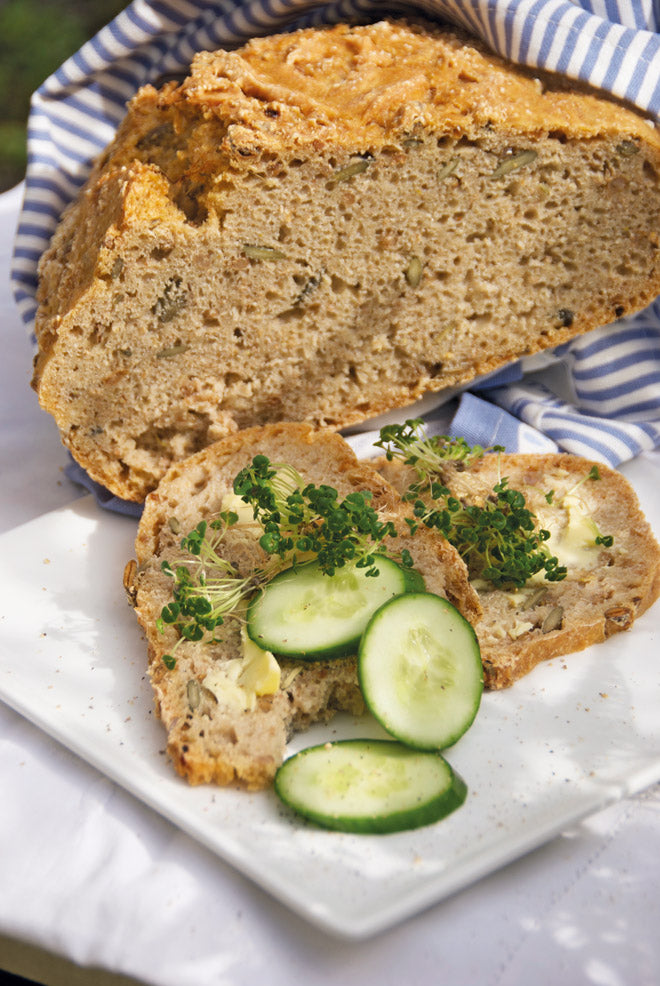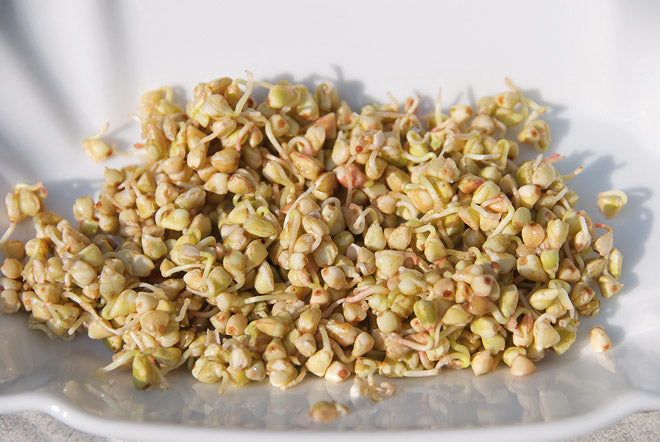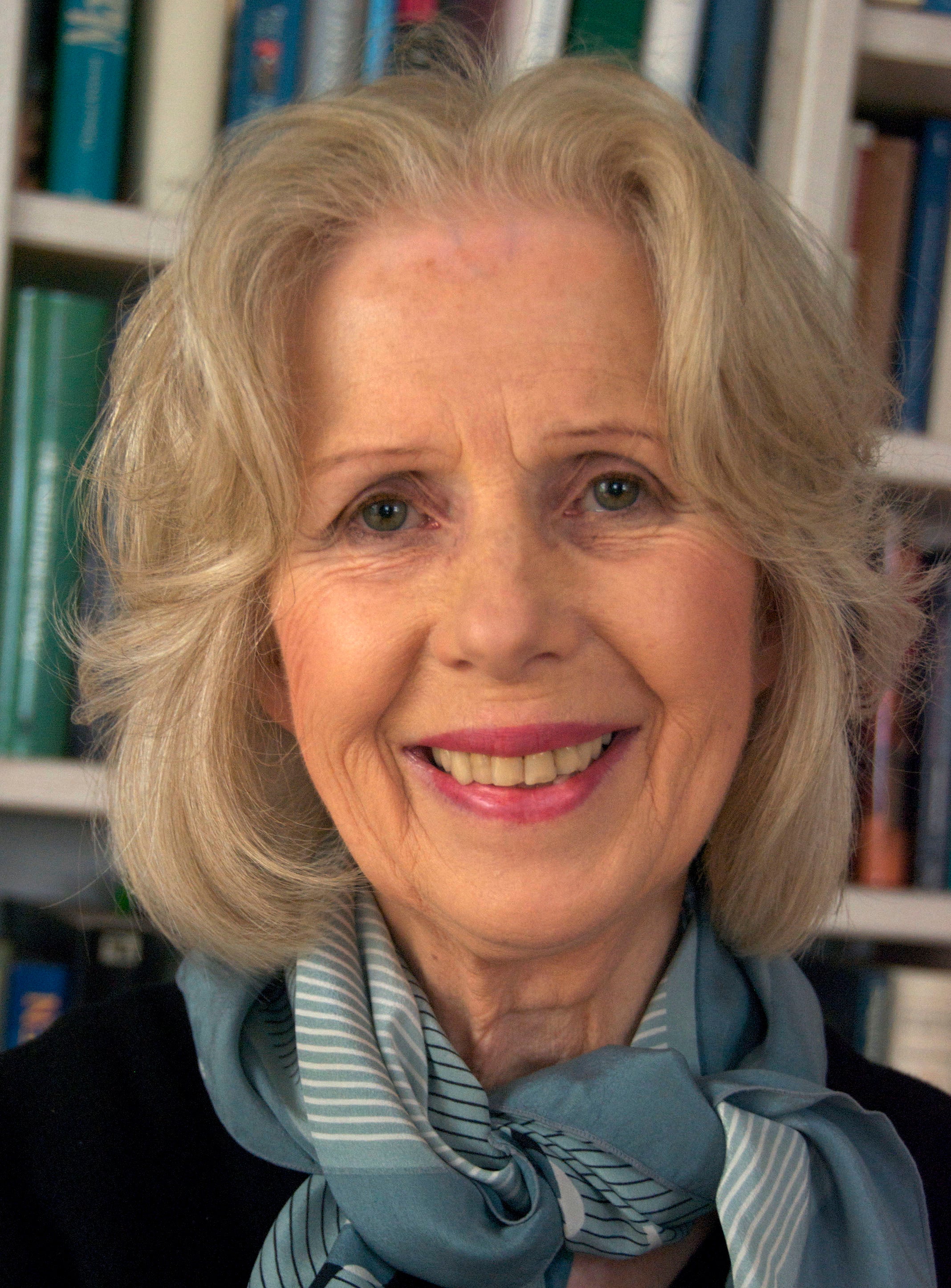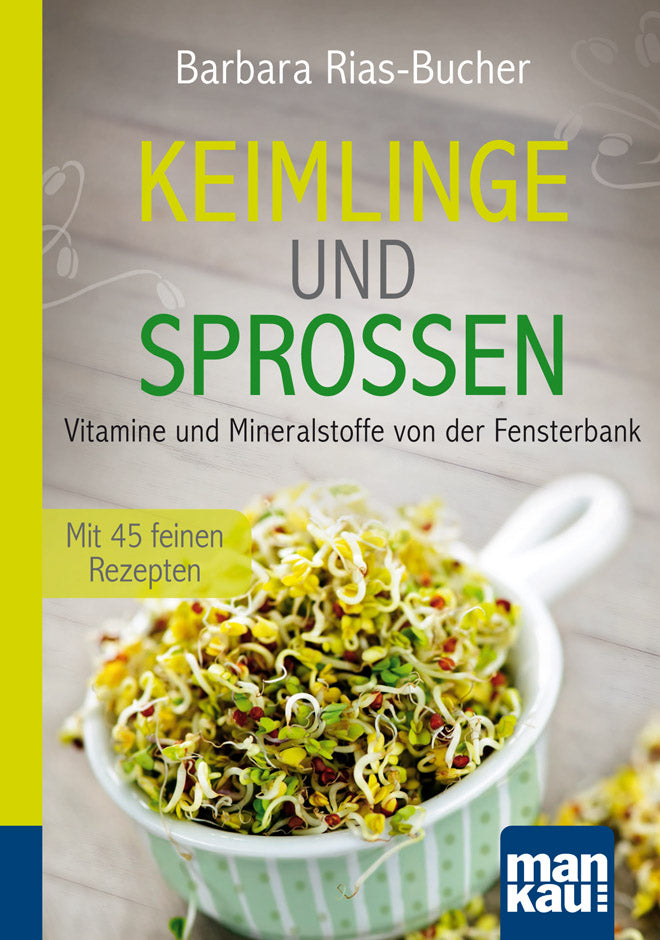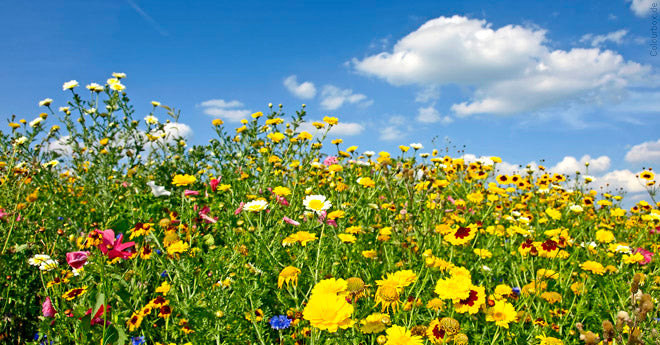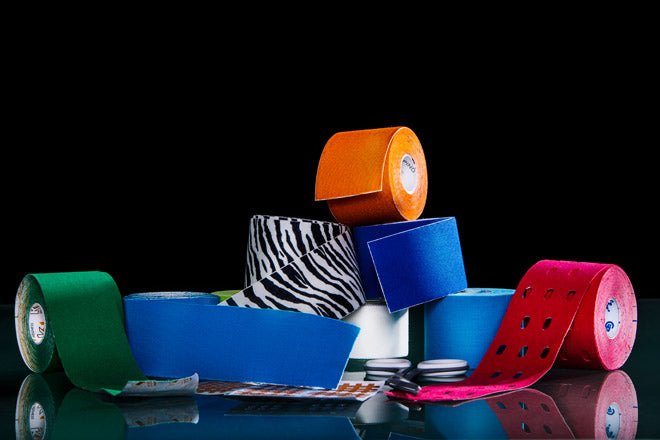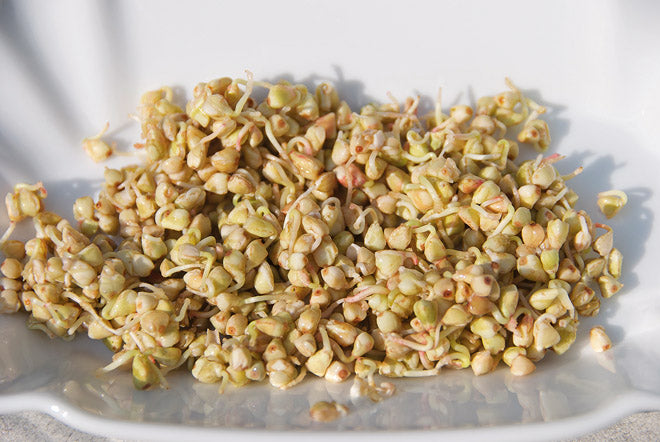
Vitamin packages from the windowsill
Vitamin packages from the windowsill
Growing your own sprouts provides nutrient-rich ingredients all year round
In her new book " Keeplings and Sprouts ", the successful cookbook author and committed self-sufficient person Dr. Barbara Rias-Bucher shows what is in the little plants. If you pay attention to a few things, you can grow them yourself from grains and pulses, kernels and seeds, vegetables and herbs.
Useful know-how
When you read books, blogs, magazines and the internet, you are often confused by the different uses of terms or the variety of information. Since Dr. Barbara Rias-Bucher has studied wholesome nutrition intensively and has also successfully grown sprouts “on the windowsill” for years, she knows what is important.
For example, by "germinated seeds" she means breaking open the hard seed coat by regularly rinsing it until the "seedling" or "sprout" appears. These stretch out to form small stems, the two thick cotyledons can be spread out like wings or so closed that the seed still appears intact. With a little theory for successful and healthy sprout cultivation, the compact guide explains how "seedlings and sprouts" make a decisive contribution to a balanced diet.
Hygiene and biorhythm
The most important thing when growing sprouts is hygiene, because germs are almost always contained in the seeds. This is harmful if these germs multiply rapidly due to improper handling. Therefore, even more care must be taken when growing sprouts than when cooking. Germinated seeds, seedlings and sprouts always pose a risk of infection; "Pregnant women, small children and the very elderly should avoid germinated seeds, seedlings and sprouts, but they can eat sprout greens - as well as thoroughly washed salad and herbs," recommends the nutrition expert. But if you follow a few basic rules, you don't have to worry about health damage.
The seeds can be germinated and grown into sprouts all year round. This happens quickest in summer and early autumn, and takes a little longer during the other seasons. In winter in particular, the seeds do not germinate as quickly and grow into sprouts more slowly. Firstly, this is related to the intensity of the light, as light regulates plant development from seed germination to flowering and fruit formation. Secondly, the biorhythm of plants, animals and people is based on time cues such as the length of the night: determined by the earth's orbit around the sun, this is an essential factor in the growth and development of plants.
Cultivation and harvest
Almost all seeds must first be poured over with water in a glass and then left to rest for around six hours, i.e. half a day or overnight. During this time, they swell until the so-called swelling pressure inside is so strong that the hard seed shell breaks open and the metabolic process of the new plant is activated. The soaked seeds are poured onto a sieve, rinsed thoroughly with cold water and then placed in a germination container that has previously been cleaned in the dishwasher or rinsed with boiling hot water. The compact guide presents various commercially available containers and their advantages and disadvantages.
The germination process develops best between 18 and 24 °C. Cold only delays development, while extreme heat can cause bacteria and mold to form. Seeds, seedlings and sprouts must be thoroughly rinsed under cold running water every day until harvest. They will last for a maximum of two days in a well-sealed box in the refrigerator, but then they no longer taste as good and lose a lot of their vitamins - so it's best to enjoy them fresh!
Book tip:
Barbara Rias-Bucher: Germs and sprouts. Compact guide - vitamins and minerals from the windowsill. Mankau Verlag, 1st edition January 2017, paperback, full color, 11.5 x 16.5 cm, 127 pages, 8.99 euros (D) / 9.20 euros (A), ISBN 978-3-86374-364-2.
Link recommendations:
More information about the guide "Seedlings and sprouts"
To the reading sample in PDF format
More about Barbara Rias-Bucher
To the Internet forum with Barbara Rias-Bucher
